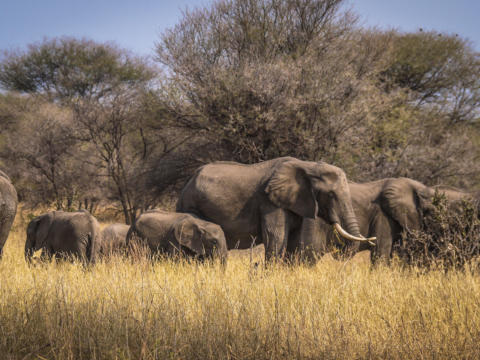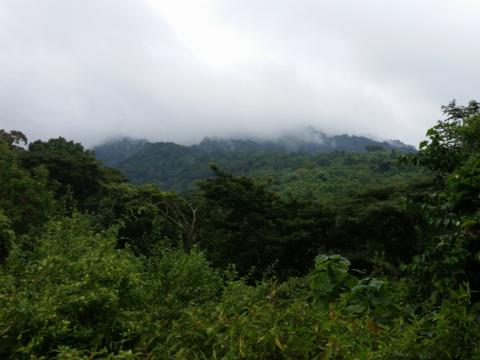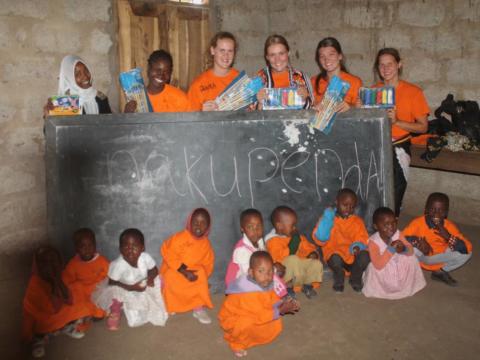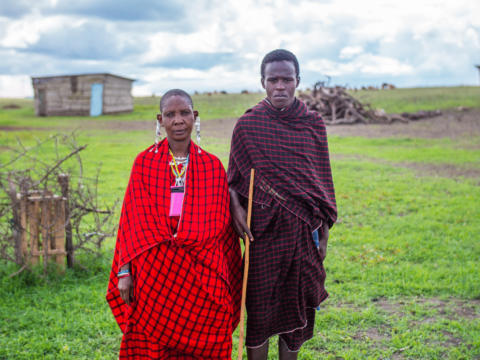Only 480€ per week!
Zanzibar Teaching Assistant
Stone Town - Tanzania
Be part of the change you wish to see in the world as you assist the local teachers who provide a powerful environment for student learning in Zanzibar.
Teachers are the invaluable providers of the educational foundation that propels local children forward. Your own gain will be immeasurable, as you assist teachers in schools where the extra hands and efforts are very much needed to broaden the perspectives of the students who might otherwise have limited international exposure.
Program Description
Enjoy an opportunity to assist local teachers and students in one of the most incredible places in the world! Zanzibar is more than just spices and beaches. It is an amazing combination of cultures and traditions that have come together and the young people of this archipelago have a lot to learn from you as well as a lot to offer!
We have strong relationships with various primary, and secondary schools throughout Zanzibar, most are outside of the city areas. These schools are in need of teaching support in a variety of areas including English, Math and Science.
You will be assisting local teachers through the use of songs and playing educational games. You may also lead the children through activities like arts and crafts, sports, drawing, coloring, writing and more!
Our teaching assistant program is generally meant to support the learning of children of ages between 5 to 14 years (grades K – 7). The school operates between the hours of 0800 in the morning up until 1500 in the afternoon. This program is designed for participants to engage with students 4 or more hours per day with breaks in between class sessions and sometimes there may be after school activities available as well. Lesson planning for the next day should also be done.
Please feel free to bring teaching materials such as games, coloured pencils, erasers, English language books, and even clothes and toys to donate. Those items would be welcomed! We recommend you also bring pictures or other small objects representing your country of origin, which you could also turn into an educational lesson that will really broaden the children’s world!
Aims & Objectives
- Improve the village children’s educational foundation and widen their cultural interactions
- Provide you with a teaching assistant experience, an invaluable life skill!
- Assist the teaching staff with extra hands and efforts
Schedule
Monday to Friday
- Breakfast
- Assisting Teachers and Students at the school
- Lunch break
- Assist Teachers and Students at the school
- Lesson Planning for next day
- Dinner
Note: This schedule can be changed and/or amended depending on weather conditions, local conditions and unforeseen circumstances.
Participant Criteria & Requirements
Standard Requirements
Minimum age: –
Maximum age: –
Minimum English level: Basic
CRB required: On Signup
Passport copy required: No
Resume copy required: No
Required qualification: None
Additional Requirements
There are no further requirements for this program.
Additional Equipment
No additional equipment required.
Location
Zanzibar is an amazing enigma that tempts you to explore it from end to end. It is a semi-autonomous region within the United Republic of Tanzania and it is comprised of two main islands, Unguja and Pemba, and a number of sparsely populated islets. After the 1964 revolution, Zanzibar joined with the then Tanganyika to form the United Republic of Tanzania. Zanzibar maintains its own government and is directly responsible for all non-union affairs, including health services.
Unguja Island covers an area of about 1,464 square kilometers and Pemba Island covers an area of about 864 square kilometers. The local people are a mixture of ethnic backgrounds. Islam is the dominant religion and practiced by most of Zanzibaris, although there are also followers of Christianity and other ethnic beliefs. Swahili is a local language used by people and is spoken extensively in Zanzibar. English is also spoken by many people.
About the Accommodation
You will be staying in a traditional and comfortable guesthouse with multiple bedrooms, communal bathrooms, a kitchen and one sitting room — suitable for enjoying the company of your fellow participants. Please note that all rooms are single gender. All meals will be provided at this accommodation.
Food Arrangements
Local meals that are typical of Zanzibari culture will be provided at this accommodation.
Facilities
You will easily find a few small local stores that sell snacks, drinks and any basic supplies you might need during your stay. Nearby, there are ATM's, banks, shops, a local pharmacy, etc.
Activities & Events
No scheduled activities outside the program.
Sights & Surroundings
Zanzibar
Zanzibar is known for its sandy white beaches and unique culture. While here, don’t miss Stone Town, a place that is emblematic for its mazes and spices (take a spice tour for sure!). Another must is a visit to Prison Island, where you can spot dolphins and marine life. Travel north or east of the island for some of the best and cleanest beaches in the world and enjoy the Indian Ocean at its best!
Transportation
From this location we do not provide free transport to other locations.
Quick Facts
Name: United Republic of Tanzania
Population: 52 million
Capital: Dodoma
Language: Swahili, English
Currency: Tanzanian Shilling (TZS)
Time zone: EAT (UTC +3)
Country Information
Tanzania is a large country in Eastern Africa within the African Great Lakes region. Parts of the country are in Southern Africa and it is bordered by Kenya and Uganda to the north; Rwanda, Burundi, and the Democratic Republic of the Congo to the west; Zambia, Malawi, and Mozambique to the south; and by the Indian Ocean to the east. It is home to Kilimanjaro, Africa's highest mountain, in its northeastern region and is considered the Safari capital of the world!
Tanzania is a presidential constitutional republic, and since 1996, its official capital city has been Dodoma, where the President's Office, the National Assembly, and some government ministries are located. Dar es Salaam, the former capital and its largest city, retains most government offices and is the country's principal port and leading commercial centre.
Climate
Climate varies greatly within Tanzania. In the highlands, temperatures range between 10 and 20°C during cold and hot seasons respectively.
The rest of the country however has temperatures rarely falling lower than 20°C. The hottest period extends between November and February (25–31°C) while its coolest period occurs between May and August (15–20°C).
Tanzania has two major rainfall regimes: one is uni-modal (October–April) and the other is bi-modal (October–December and March–May). The former is experienced in southern, central, and western parts of the country, and the latter is found in the north from Lake Victoria extending east to the coast.
Culture
Tanzania's large population is diverse, composed of several ethnic, linguistic and religious groups.
Christians and Muslims make up the large majorities, but 2% still practice Traditional African Religion.
Over 100 different languages are spoken in Tanzania, making it the most linguistically diverse country in East Africa. All four of Africa’s language families are spoken (Bantu, Cushitic, Nilotic, and Khoisan), but Swahili and English are its official languages, though Swahili is pushed officially as a unifying language, to the detriment of other minority languages, even English.
Transportation
Car
Although much of its roads are usually in poor condition, most transport in Tanzania is by road, 80% of its passenger traffic in fact. Rentals, Taxis, buses and mini buses (locally known as “dala dala”) account for the main methods of transportation.
Train
Tanzania’s railways have a spotty safety record and it is not uncommon to have passengers experience frustration with slow journeys, frequent cancellations and delays, but if you have the time – it is a unique way to travel with amazing landscapes decorating the backdrop!
Airplane
Tanzania has four international airports, along with over 100 small airports or landing strips; airport infrastructure tends to be in poor condition although there are reports of improvements in this area. Local airlines in Tanzania include Air Tanzania, Precision Air, Fastjet, Coastal Aviation, and ZanAir.





